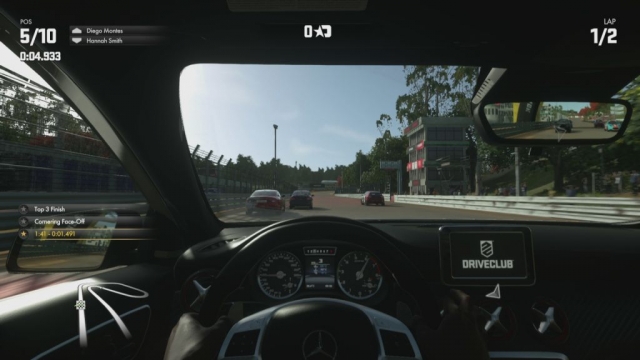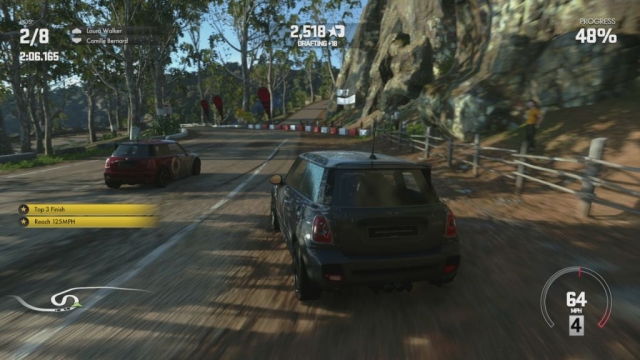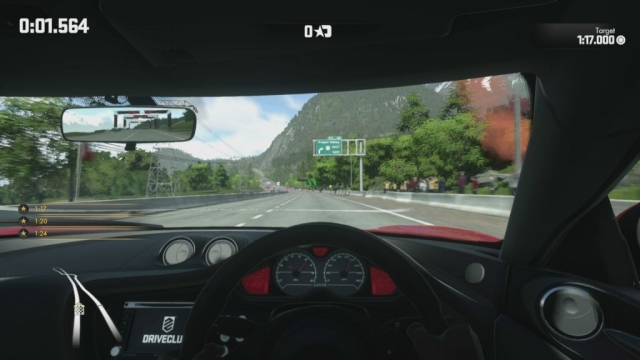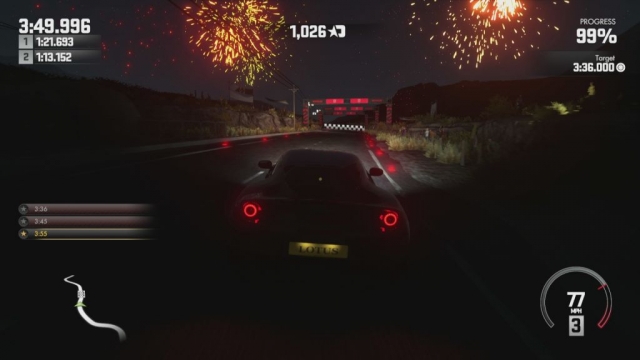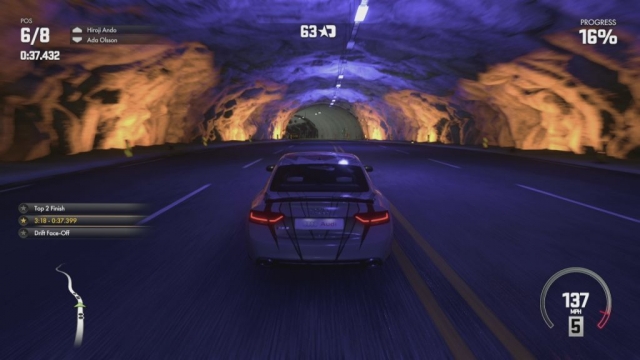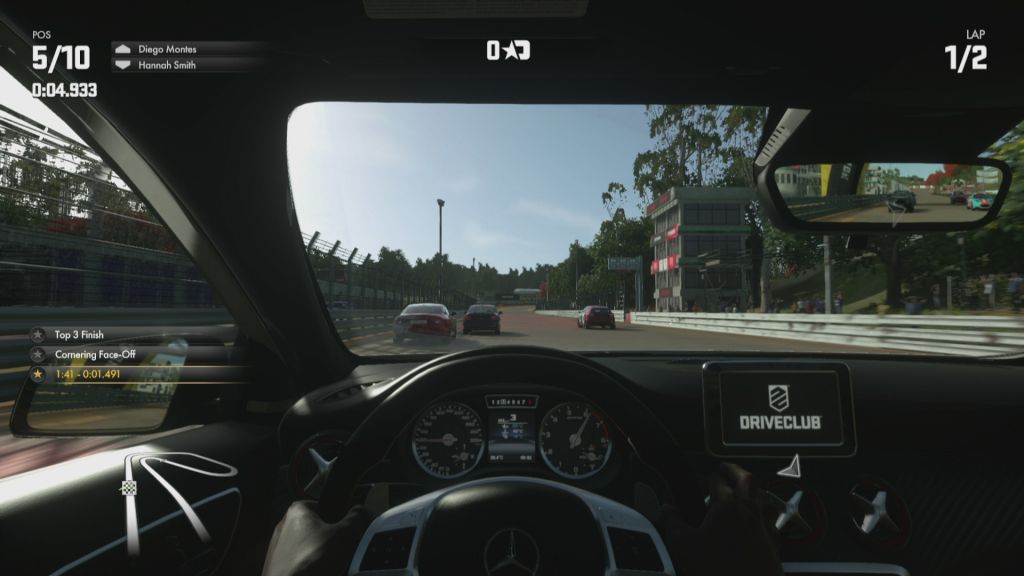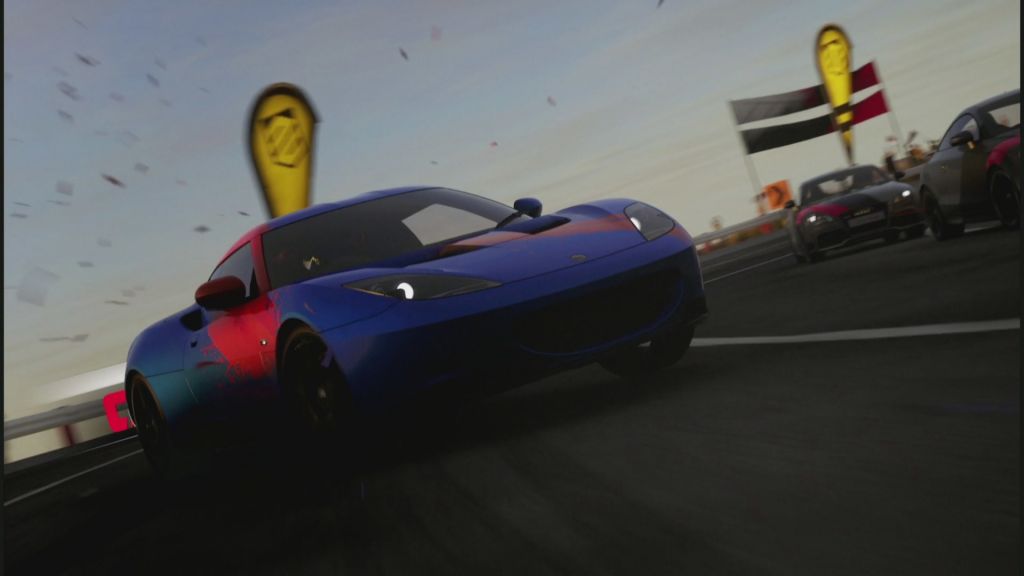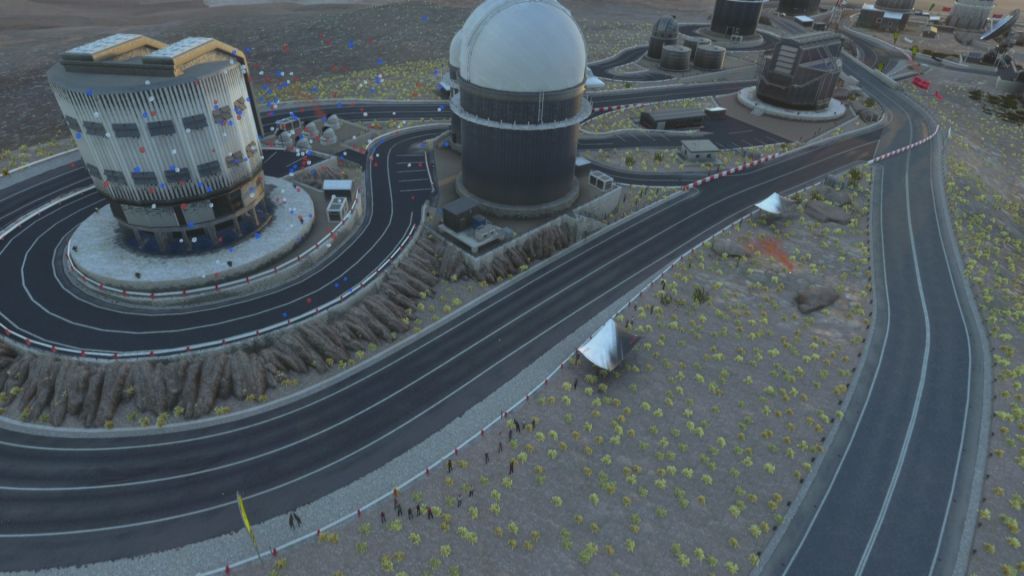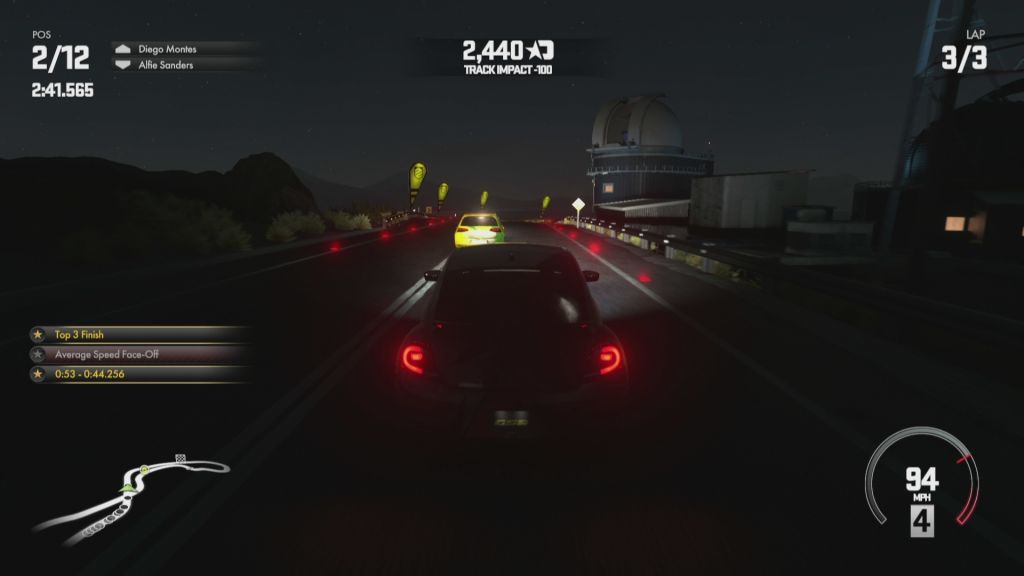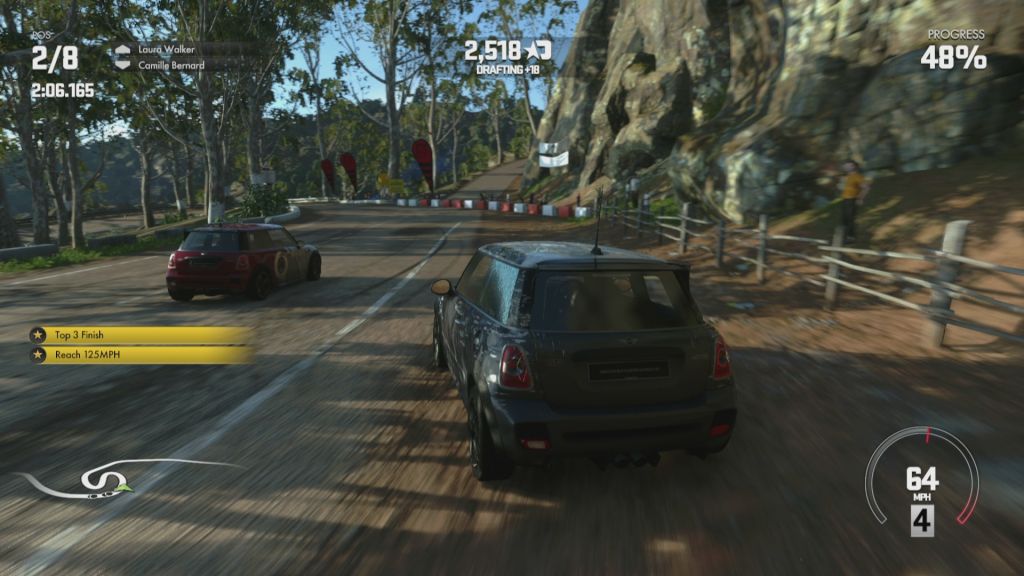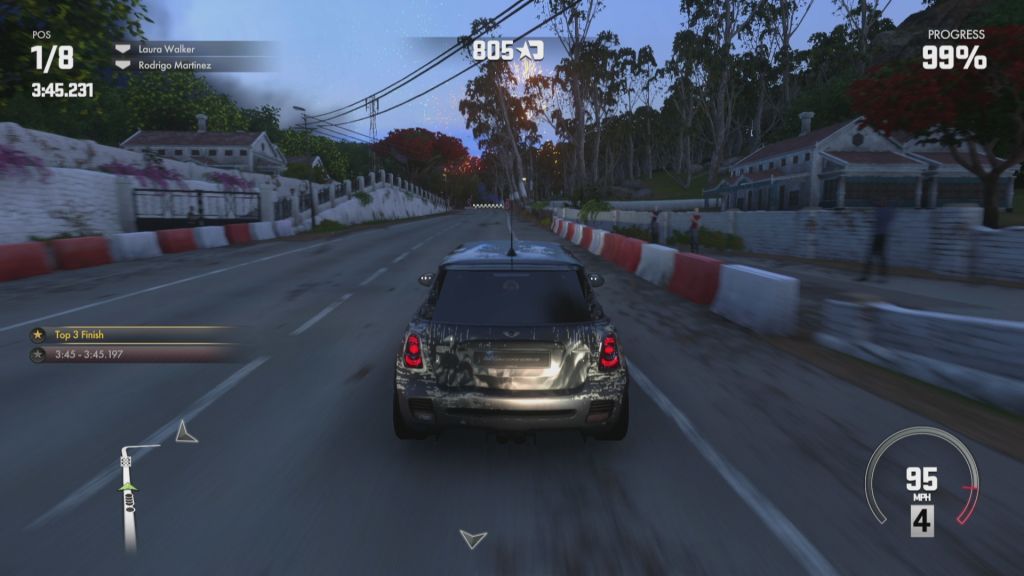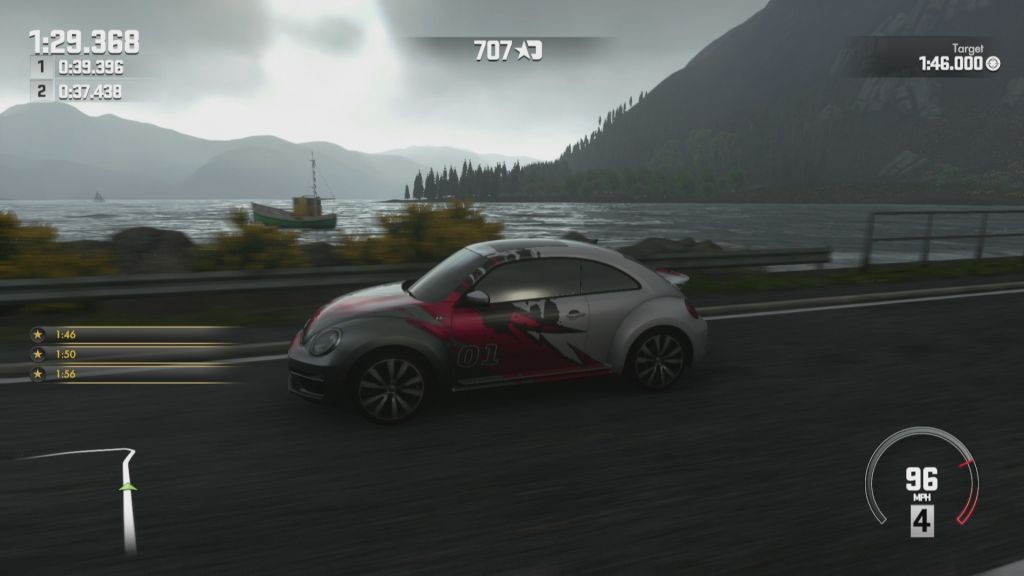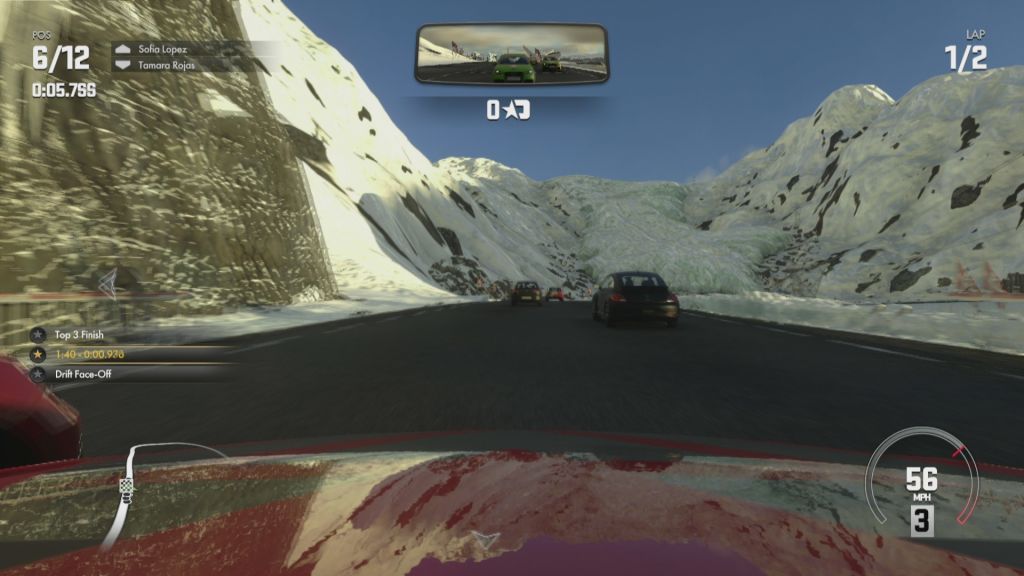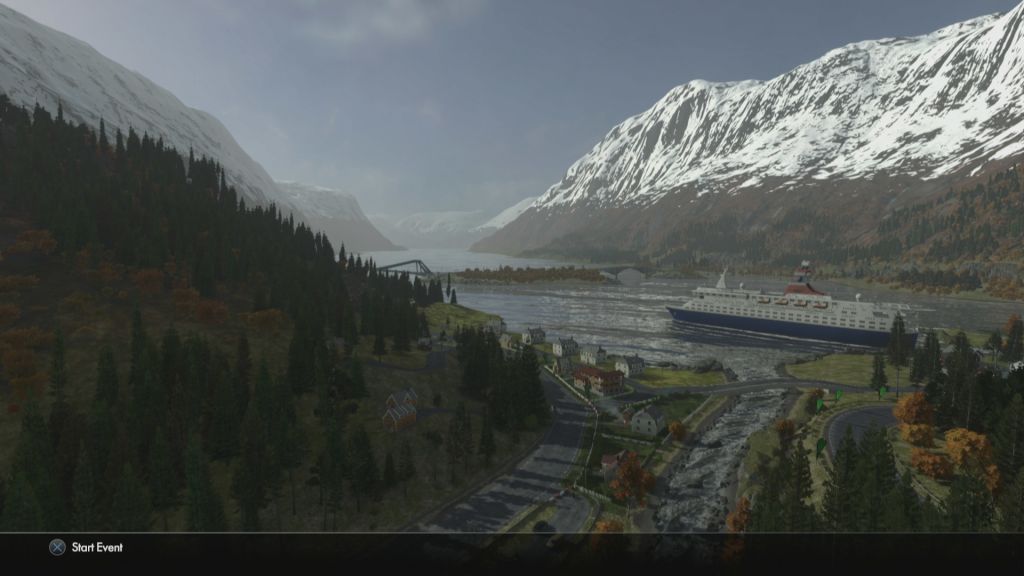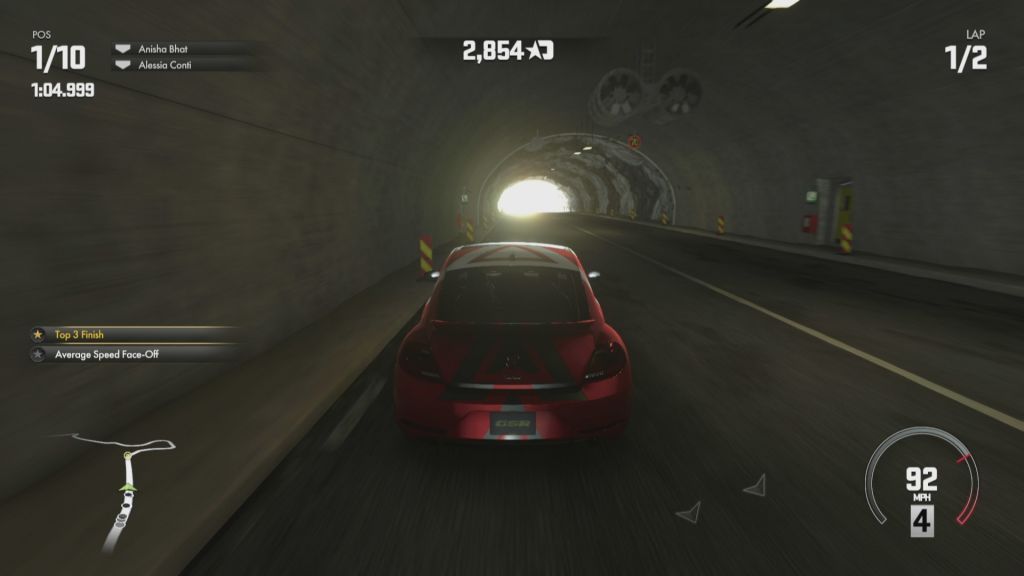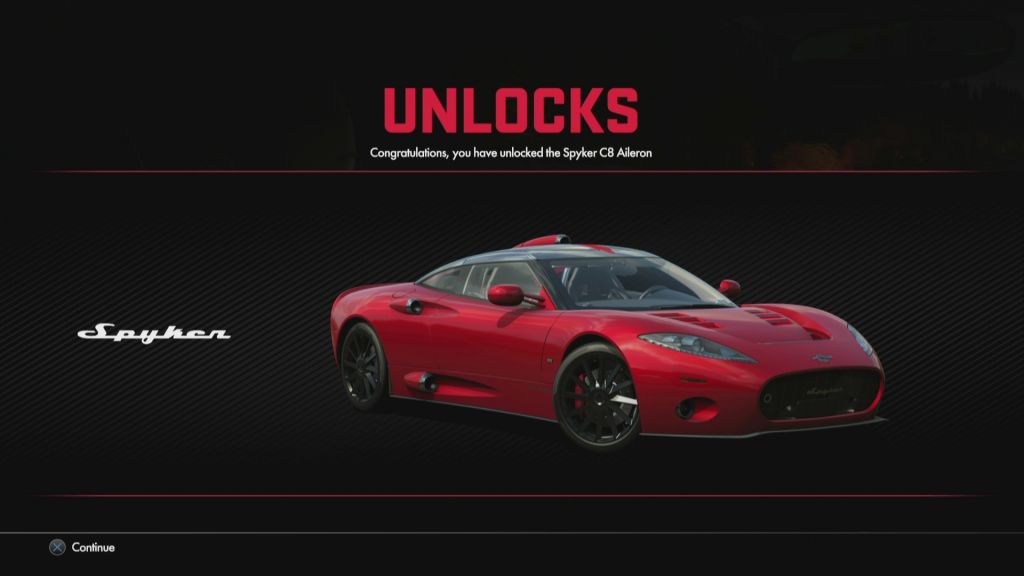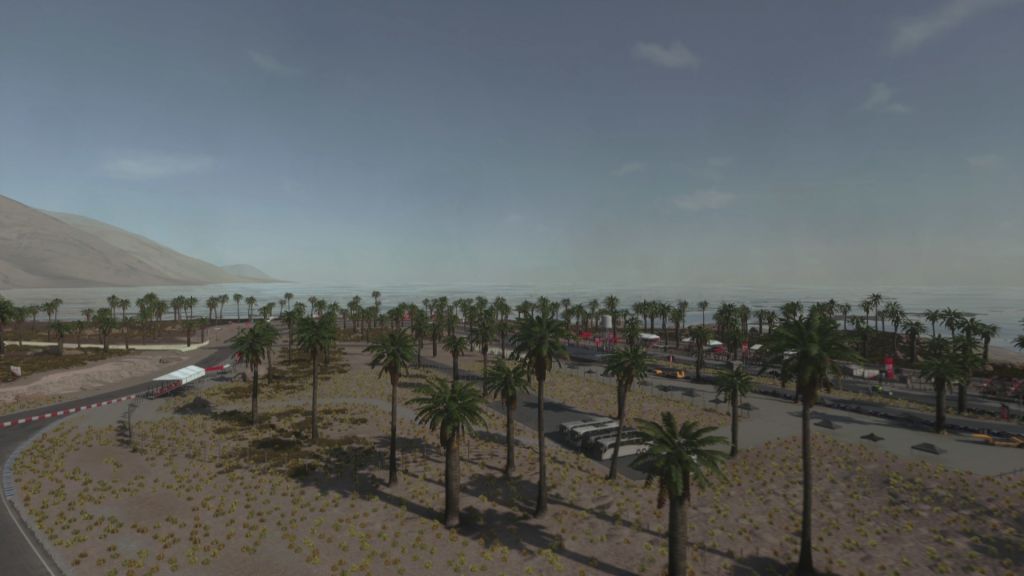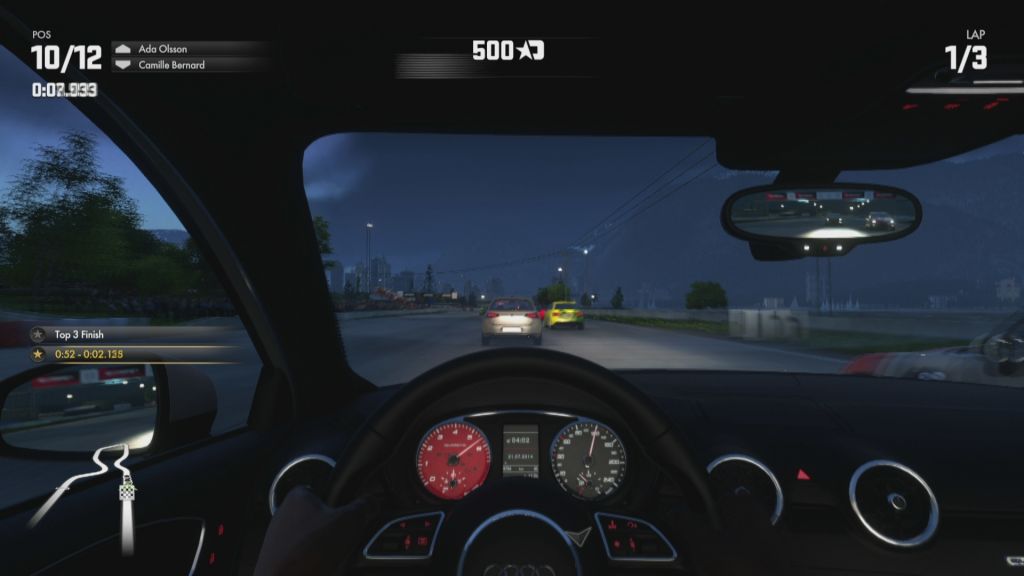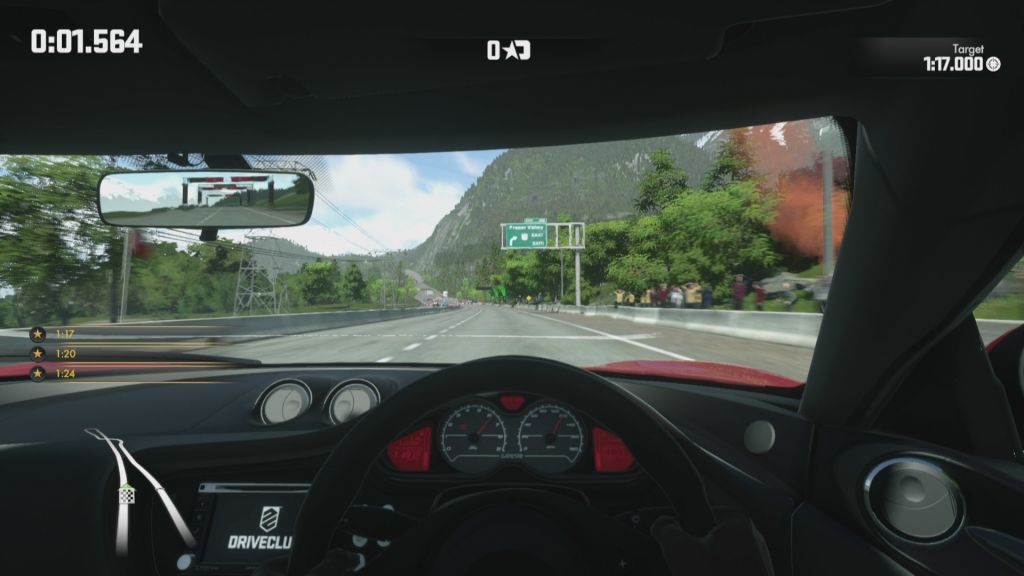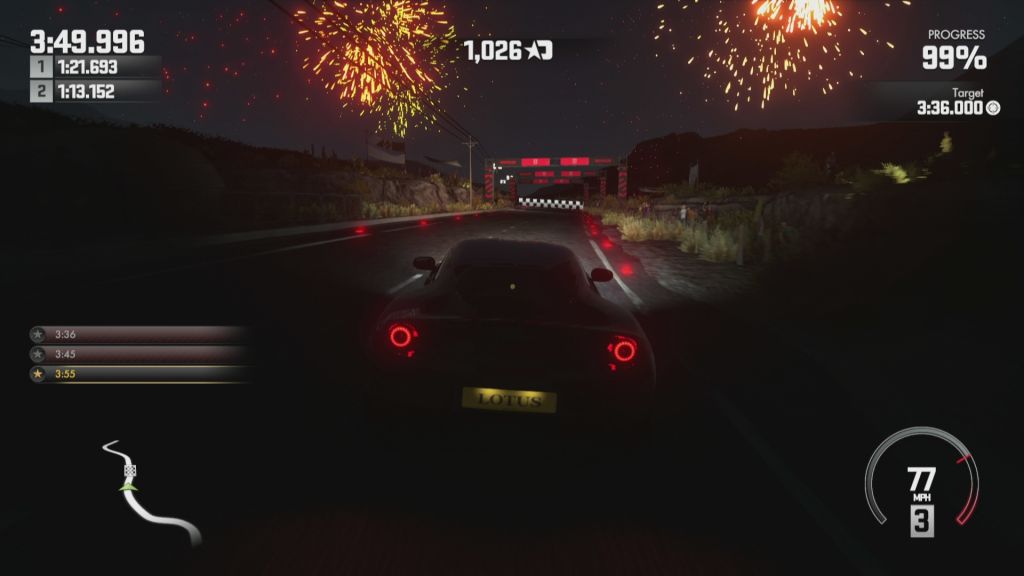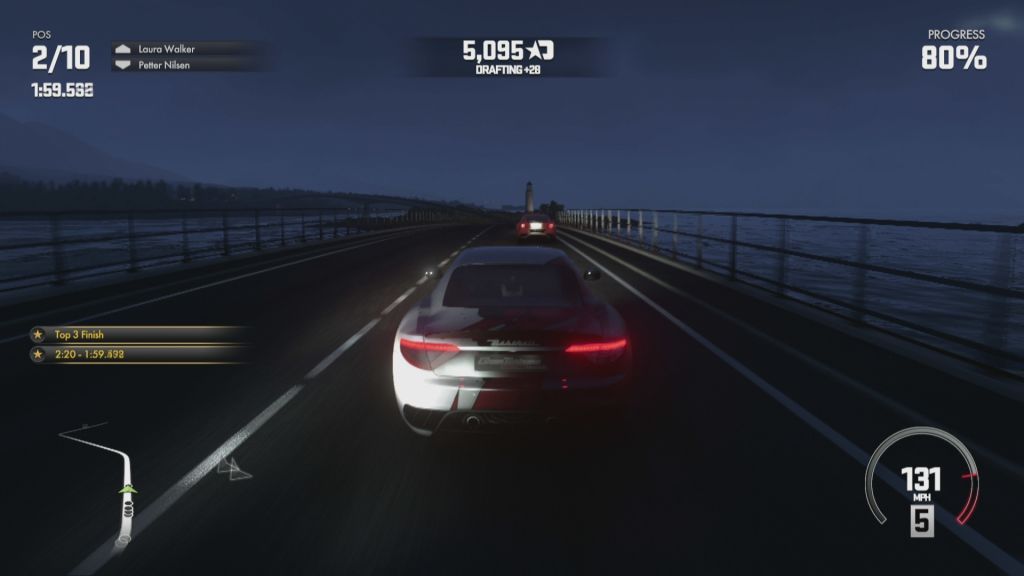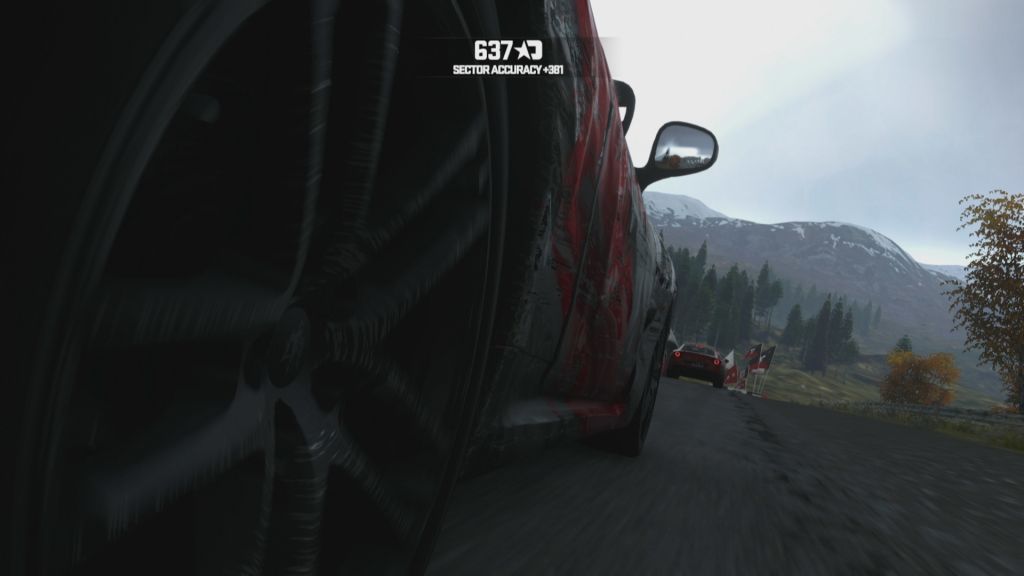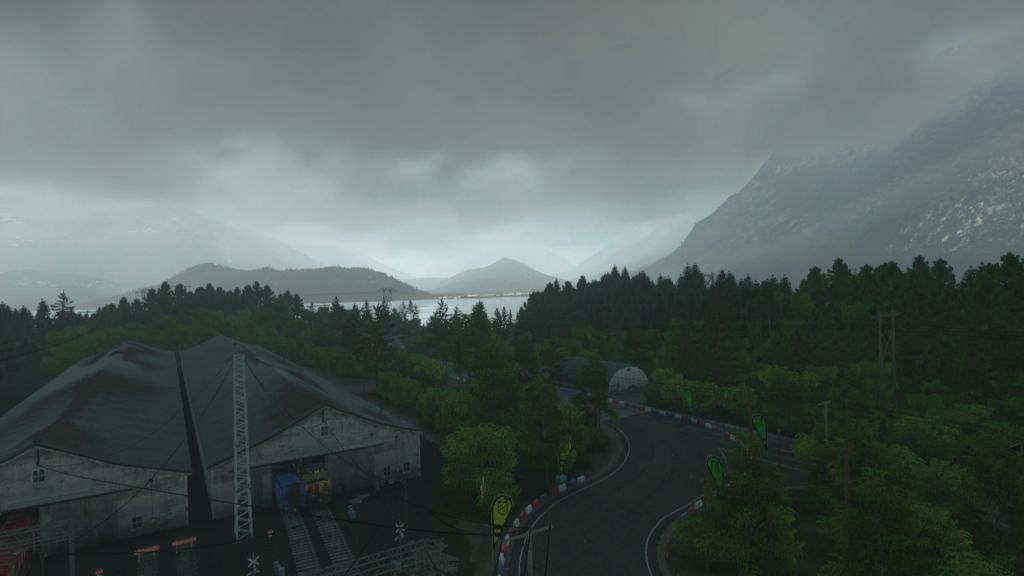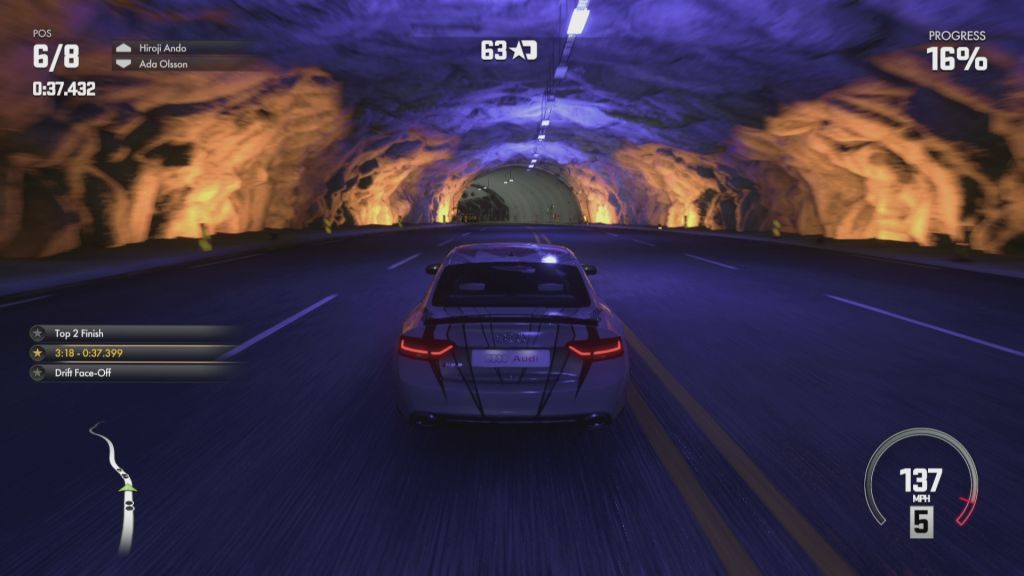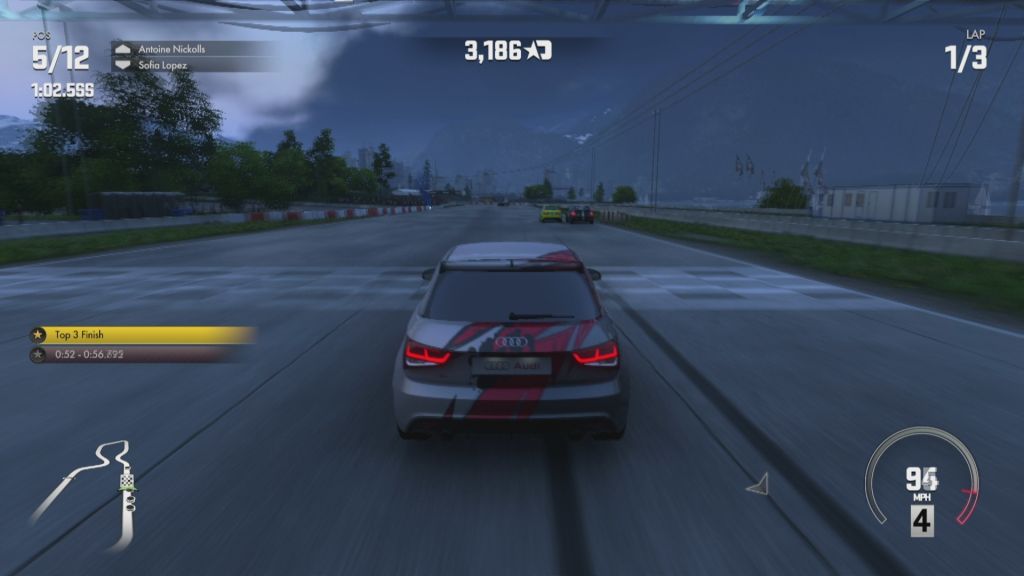Driveclub
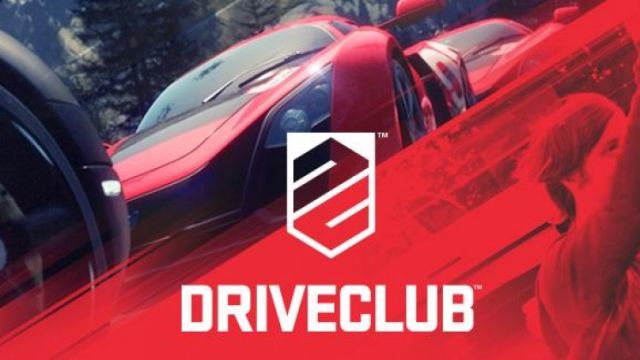
Driveclub was a killer app for the PS4 before its launch, but was delayed 11 months for fine-tuning. As a result, the game went from being in direct competition to the sub-par Forza Motorsport 5 to the far-superior Forza Horizon 2. On top of that, it’s a new IP and those are going to have a harder time being taken seriously amid established ones. Sony’s plan to release an expanded PS+-only demo was a wise one to engender goodwill, but its delayed launch hurts that plan. The end result is that we’ve got a brand-new $60 product and many already have bad tastes in their mouths from it due to delays across the board.
It’s a shame too, as the actual racing game part of things is very well-executed. The Driveclub namesake comes from clubs you can form in the game, although for the anti-social, they’re not a requirement, and they basically act as a hub for online playlists with friends. If you’ve got a group of online allies with PS4s, then you’ll get a lot of use out of them. Unfortunately, the servers have been down far too often for us to come to a reasonable conclusion on the online setup as a whole. Since that’s presently out of the equation, the core offline racing experience is what you’re left with.
At its core, the game has a Forza-esque event system where you’ve got races, time trials, top laps, and drift events to earn stars. Each star gets you one step closer to unlocking series events and then a new set of events after that. The more you get in each individual event, the less you’ll have to worry about in later events. If you run into an event where you get 2/3 stars, but just can’t get that last one than the best bet is to just move on and try your luck elsewhere.
Surprisingly, Driveclub is a highly-technical racing game that is more sim-ish than it would appear on the surface. You’ve got to drive on the track as much as possible, and avoid collisions too. Even being hit by another car can result in a point deduction and the end of your multiplier. Like Project Gotham Racing/Metropolis Street Racer and the Forza Horizon games, you’ve got a points system in play at all times. Unlike those games, Driveclub also gives you a set of objectives to complete during each race represented by the aforementioned stars.
The objectives tend to range from reaching a certain speed in a speed zone to getting more points in a drift zone, beating a lap under a particular time, or getting a top three finish. Ideally, you’ll want to knock out as many objectives as possible within one race, but that’s unlikely to happen very often. The AI is unforgiving, and your best anti-frustration bet is to just accept knocking out one of them in a race, then restarting until you get another one and maybe the other two taken care of if you’re lucky.
Driveclub is a technical racer, but it controls marvelously. This is the first PS4 racer I’ve played and after getting so used to the Xbox One’s controller with the Forza games, it’s clear that the Dual Shock 4’s triggers are a bit less satisfying. They’re far better than the hideous Sixaxis/Dual Shock 3 ones, but still a far cry from the past two sets of Microsoft controller triggers. They feel fairly thin, and don’t make for a very satisfying experience as a result. Still, the game’s controls are responsive, even if the core game is less fun to play due to all of the restrictions placed on you.
Driveclub lacks some fundamental things that just stick out as odd for a game in 2014. There are no flashback/rewinds in the game. Now this isn’t an altogether bad thing, as it does force you to play better, but it is frustrating when you’ve got a great run going and then one bad corner nixes it. The game has a reset to track function, which is fairly modern, but not this – so it’s just a bit odd. Driveclub feels like a rough draft in a lot of ways and reminds me of Metropolis Street Racer on the Dreamcast.
Like that, you have a game that served as a fine foundation for years to come (although we didn’t quite know that at the time), but it had a lot of things in it that were either flawed or frustrating. The game itself was unforgiving, and you had to be on your A game to succeed at all. This, like MSR, also features a lot of beautiful imagery for the area you’re in to help suck you into the world. In the game itself, you’ll be treated to the best night lighting effects yet in a game. The tail lights are the best yet, and while that may seem like a minor detail, it’s very impressive. They have light trails and the light fixtures themselves are so detailed that you can see every little part that makes up the light pattern.
There are even night sections with lights surrounding the roads that very much remind me of Night Driver – only instead of black and white, you get black and red. It’s a fantastic example of what’s old being new again, as this approach is an example of minimalistic design making use of high-end technology. The car models as a whole are top-notch, as are the visual effects when sunlight or weather comes across the paint. As nice as everything looks, it’s a shame there isn’t a photo mode to really make the most of the game’s graphical prowess.
Like 99% of racing games that aren’t Daytona USA or in either the Wipeout or Forza Horizon series, you’re better off leaving the in-game audio set to just sound effects. The soundtrack is full of techno, and while that’s a genre I enjoy in games, the music here simply isn’t all that good. Luckily, the sound effects are. Smashing into vehicles may be discouraged by the game itself, but when it happens, you do get a visceral crunch
Driveclub is easily the biggest disappointment at its launch so far this generation. Despite a fairly long delay, the game still doesn’t feel like it’s anywhere close to living up to it’s full potential. The rock-solid racing engine is undone by so many restrictions being placed on players. The lack of basic things like rewinds and even a photo mode makes it seem like a barren experience. Evolution Studios has crafted something that could really be stellar, but it’s going to be after launch, and that’s a real killer. As it stands, the best bet for consumers is to enjoy the PS+ edition, and if they enjoy that, then pick it up at the permanent PS+ exclusive price of $50. If you don’t have PS+, then definitely wait for it to hit $20 or so since this is going to be a love it or hate it kind of experience.
Reviewed By: Jeremy Peeples
Publisher: Sony Computer Entertainment
Rating: 70%
——————————————————————————–
This review is based on a retail copy of Driveclub for the PlayStation 4 provided by Sony Computer Entertainment.
 Game Over Online
Game Over Online